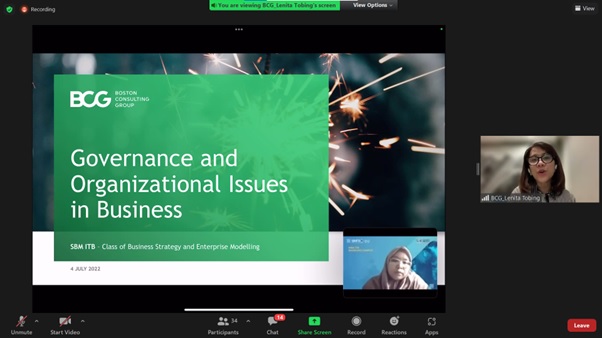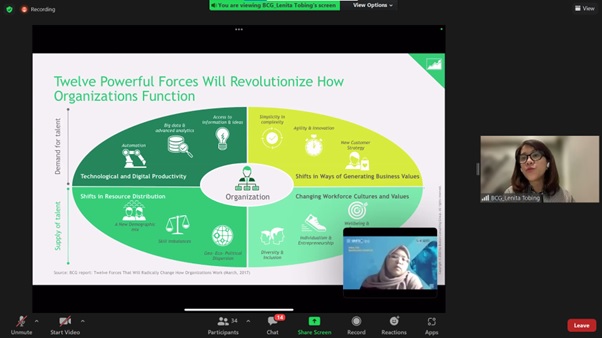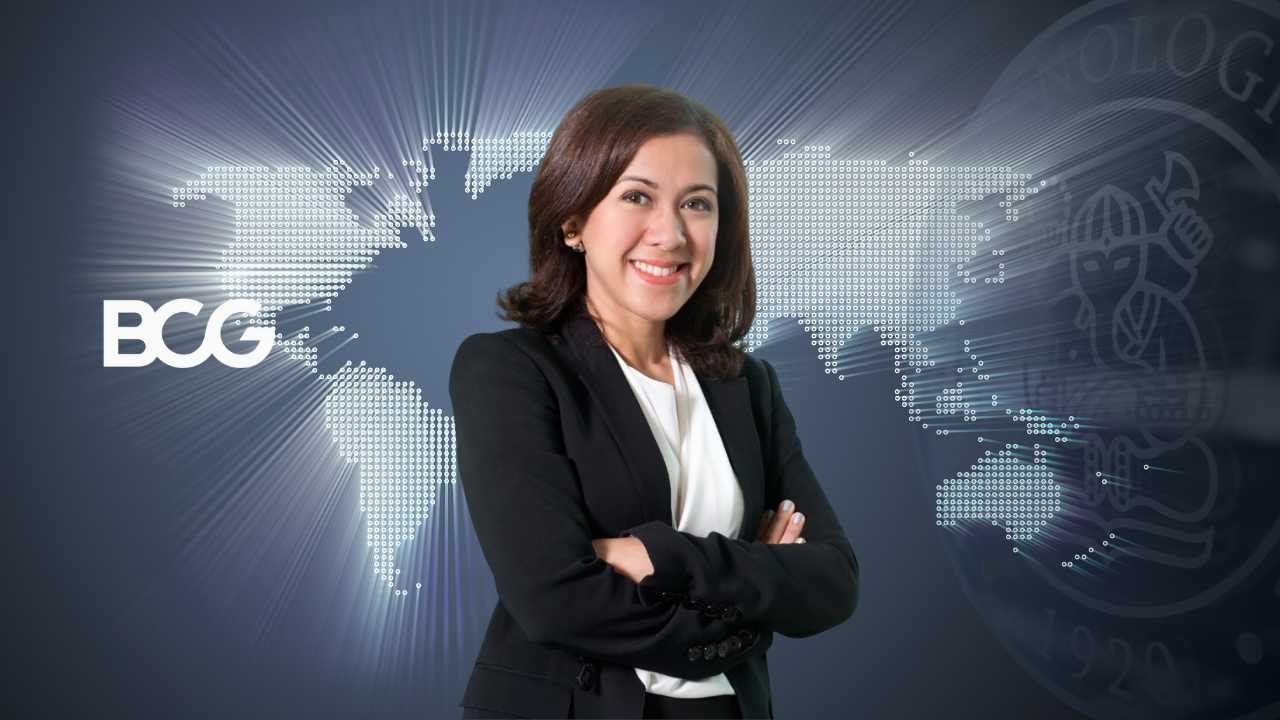The digital age brings new opportunities and risks. The personal experience of each user is the key to demand from the consumer side, where the company’s business model must prioritize the close relationship between companies, products, and consumers. So, how can an organization continue to adapt and evolve? The answer can be found in the SBM ITB virtual class taught by Lenita Tobing, the Managing Director & Partner at Boston Consulting Group (BCG), on Monday (4/7/2022).
 According to the former PwC Network and Arghajata Consulting Strategy Partner, existing jobs are only expected to generate 1% of productivity in the new era. As a result, organizations unable to adapt will struggle to cope with current conditions due to an imbalance in supply and demand in the digital ecosystem.
According to the former PwC Network and Arghajata Consulting Strategy Partner, existing jobs are only expected to generate 1% of productivity in the new era. As a result, organizations unable to adapt will struggle to cope with current conditions due to an imbalance in supply and demand in the digital ecosystem.
As a business consultant with extensive experience, ranging from Mieza Indonesia to Booz & Company to PricewaterhouseCoopers – Sydney, Lenita stated that the company’s inability to deal with supply and demand in the digital ecosystem would present numerous challenges.
“For example, separate development, a lot of bureaucracy, poor vendor management, development, and operational capabilities, too many managers without many actors, prolonged project processes, low productivity performance indicators, and limited reporting within and between teams,” said Lenita.
 Revolutionary Transformational Forces
Revolutionary Transformational Forces
The fulfillment of the digital revolution factors, mapped in the supply and demand diagram, is the key to organizational change. Companies must be able to improve the functions of technology creating productivity (Automation, Big Data and Advanced Analytics, and Access To Information) and change the way business value creation works on the demand side (Simplicity in Complexity, Agility and Innovation, and New Customer Strategy).
Meanwhile, on the supply side, companies must be able to overcome challenges posed by changes in resource distribution (A New Demographic Mix, Skill Imbalances and Geo Eco Political Dispersion), as well as changes in organizational culture and workforce culture (Wellbeing, Individualism and Entrepreneurship, then Diversity and Inclusion).




